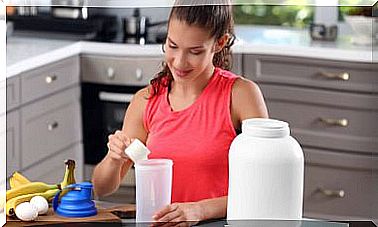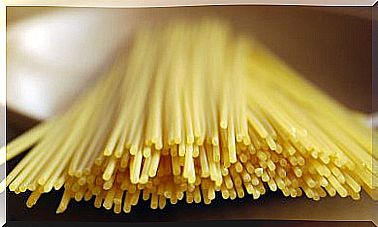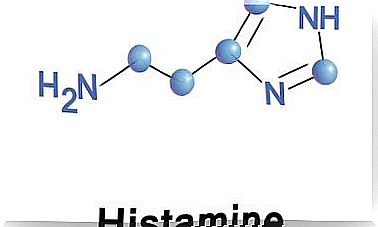Herbal Remedies To Combat Helicobacter Pylori Infection
The presence of H. pylori can be detected by breath tests and analysis of stool samples. However, the treatment of symptoms should be prescribed by the doctor.

According to data from the MSD Manual, Helicobacter pylori infection is the most common cause of gastritis and gastroduodenal ulcer (peptic ulcer) worldwide, in older people (after 60 years).
Do you have stomach aches in the upper abdomen, an upset stomach, indigestion and other complaints? This could be caused by the Helicobacter pylori (H. pylori) bacteria in your body. This bacteria lodges in the stomach lining, damages the stomach and duodenal tissue and causes inflammation.
The 50% of the world population suffers from stomach diseases due to H. pylori, which makes it the most common infection in humans.
How is Helicobacter pylori spread ?
Possible routes of transmission from one infected person to another are saliva, fecal matter, and medical instruments infected with it.
Infected people can have the bacteria in dental plaque, so it is transmitted through saliva when they come into contact with healthy people.
It is also found in fecal matter and, if it is not properly sanitized, it can contaminate food and water for human consumption. That is why it is always recommended to wash food very well and filter the water.
Medical instruments such as infected nasogastric tubes are also a means of transport for the bacteria.
Stomach diseases or manifestations caused by the bacteria

Helicobacter pylori infection can cause many problems. Among them we can highlight the following:
- Chronic gastritis.
- Gastric lymphoma.
- Dyspepsia or poor digestion.
- Duodenal and gastric peptic ulcers, among others.
Herbal remedies to fight Helicobacter pylori infection
According to popular wisdom, the following herbal and herbal remedies can help alleviate some symptoms caused by H. pylori in the body.
1. Ginger infusion
Ginger is a recommended root to treat stomach conditions such as gastritis. It has anti-inflammatory, antioxidant and bactericidal properties. Also, it is said to act as a good antacid.
Ingredients
- 2 cups of water (500 ml).
- 2 tablespoons ginger, cut into small pieces (30 g).
Preparation
- Boil half a liter of water and add the ginger pieces.
- Leave it on the fire for a few minutes, then turn it off and let the infusion rest.
- Do not drink more than 2 cups a day.
2. Rosemary infusion

Rosemary is an aromatic plant to which several medicinal properties are attributed. Rosemary infusions would then be suitable to alleviate mild digestive system discomfort, as it improves the digestion process and eliminates gases.
Ingredients
- 2 cups of water (500 ml).
- 2 tablespoons of rosemary leaves (30 g).
Preparation
- Bring the water to a boil in a pot and, when it reaches a boil, add the rosemary leaves.
- Leave it on the fire for 4 minutes, remove the leaves.
- Drink in moderation.
3. Turmeric and ginger tea
As turmeric contains antioxidant substances and has antibacterial and anti-inflammatory properties, it is believed that its consumption can help reduce stomach inflammation and balance the intestinal flora. In addition, it stimulates gastric juices, reduces flatulence and protects the stomach lining. However, its consumption in excess is not recommended.
Ginger, as we have already seen, has many beneficial properties that will complement those of turmeric.
Ingredients
- Honey (to taste)
- Ginger (to taste).
- 1 cup of water (250 ml).
- 1 pinch of turmeric powder.
Preparation
- Bring the water to a boil in a pot and add the pinch of turmeric and ginger.
- Let it boil for a few minutes and then add the honey to sweeten it.
- Remove the pot from the heat and let the tea steep. Finally strain it and consume.
4. Lemongrass essential oil
In the popular sphere, lemon verbena is said to be one of the best plants for fighting Helicobacter pylori infection . So far, the bacteria have not shown resistance to plant components.
Ingredients
- 1 cup of water (250 ml).
- 20 or 30 drops of lemon verbena essential oil.
Preparation
- Dilute 20 or 30 drops of the oil in the cup of water.
- You can have this drink after every meal.
- You can also make an infusion with lemon verbena leaves.
- Consume in moderation.

Before taking a home remedy, consult your doctor
Before starting a treatment based on medicinal plants (infusions, etc.) it is important to consult with the treating physician. It must be borne in mind that, for herbal treatments to be useful, it is essential to follow the professional’s instructions. In addition, it must be remembered that there are plants, herbs, spices and the like that are contraindicated in some cases.
Home remedies are NOT a substitute for the treatment prescribed by the doctor. In any case, it is best to consume them as an adjunctive treatment (as long as the healthcare professional authorizes it).









